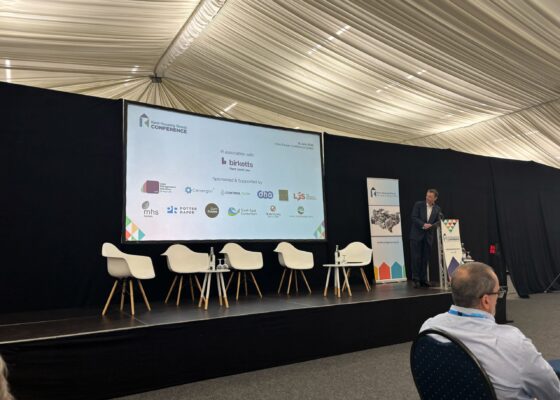The Reform of the Architectural Profession

The Reform the Architectural Profession
Quite coincidentally, as we put the finishing touches to a news article 48 hours ago about where LEP believed the role of the undergraduate, the Architect and the remit of Continued Professional Development (CPD) was headed, the ARB and then the RIBA announced sweeping changes that will undoubtedly shake up and change the trajectory of the profession for the next century.
As of this morning’s announcement from the RIBA, no stone (or stage) of the newly published Education and Professional Development Framework has been left unturned. The new table clearly sets out an unambiguous set of criteria for all those wishing to pursue a career as an Architect or to continue as one, and will likely come into force in 2021.
From grass-root undergraduates studying at University to fully Chartered Architects, the platform for assessing and continually educating is now (finally) intertwined and consistent. Only 24 hours earlier, the ARB had launched a competency survey, inviting all chartered members to participate. The goal; to seek out answers from professionals by way of a self-assessment into both their own competency levels, but also that of the industry as well. Primary, the survey focuses on the regularity and content of CPD, and how well we believe graduates are prepared (or not) for the office environment. http://www.arb.org.uk/competence-review/?dm_i=4ZCL,DPB0,1J6VCX,1KNG2,1
Over the years, our experience from some undergraduates undertaking the mentoring scheme has been one of ‘rabbits caught in the headlights’. When they visit practice or a building site for the first time, it sometimes reinforces a belief that many hold, that undergraduates or masters students arriving at practice for their Part 1 or Part 2 are ill prepared for the rigours of practice and the sheer volume of regulatory information that they are required to digest and implement. Certainly, we have experienced in the past, overhearing some students during the mentoring sessions exclaim that ‘they didn’t realise Architect’s had to undertake/understand x, y and z (when told about submitting planning applications, building regulations, specification writing, detailing, contract administration, health and safety and so on). This must change!
Whether the new set of criteria will appease the expectations of Clients and more specifically the general public is yet to be seen or heard, but as reforms go, in light of increased scrutiny on the industry, it is a very good start.
Our profession is unique. De-valued perhaps in recent years, where the role diminishes after a certain stage of a project, is a trend that must stop. The Architect must reclaim the status of a Masterbuilder, who harbours all of the design knowledge and skill capable of being able to steer a design from Stage 0 to Stage 7, thus ensuring the requirements for the health, safety, well-being and the very lives of our Clients and end users never falter. It is through this new framework that will provide the foundations for this role to be fully realised once more.
Therefore, the news that roles such as the Principal Designer are being intertwined with the Architect’s role, as well as introducing milestone exams for practicing architects under the Mandatory Competency M1 – Health and Life Safety (and the developing M2, M3 and M4) is welcomed wholeheartedly.
Under the new framework, we are pleased to see the ten core curriculum topics have remained unaltered, but now with the inclusion of offering advanced studies under Core Curriculum C2 and C9, and the added areas of specialisms under C1,2,3,6,7,8,9 and 10.
In 2020, whilst many offices attempt to remain productive, balancing longer working hours alongside a workforce either working as a skeleton crew in the office, or working remotely from home or indeed still entrenched in the furlough scheme, you’d have be forgiven for not mentioning to your boss about when the next CPD was going to take place.
No longer!
As it goes, history will record 2020 as the turning point for many things in the world, but only discount CPD as one of those at your peril.
So why has it call changed?
Back in October 2019, the Grenfell Tower Inquiry published their Phase 1 report, and it was damning. Whilst this article will not delve into the details of that report, what is important to extract from the findings is that the inquiry has shone a very large spotlight of scrutiny onto our entire industry and our professionals, and certainly not in a manner perhaps since the Great Fire of London in 1666. That’s how symbolic it is.
Earlier this year, Phase 2 of the Grenfell Tower Inquiry commenced, which included the cross examination of the professional team responsible for the design of the building. The enquiry never concluded, halted in its tracks by the covid-19 pandemic. However, what we can glean from the early findings of the Phase 2 inquiry is an systemic issue more widespread and ingrained that no right-minded individual thought possible; an issue that has seemingly been manifesting itself for years, for decades even. Faced with confusion as to how this had been allowed to go unchecked in an industry saturated by legislation, it has made each and every one of us sit up and take stock; we must immediately begin to scrutinise our knowledge base, and what we believe to be a satisfactory level of competencies, and then contrast it to the findings of the report. The question on every bodies lips was, are we delivering safe buildings with robust specification writing and detailing, and quite frankly, is it good enough?
For the industry to respond in the correct manner, it was important for the ARB and the RIBA to look closely at how professionals are continually educated during their professional careers, and this is where regular and specific CPD can play an intrinsic part in this process.
Without CPD, you are almost guaranteed to miss the fundamentals of our ever changing industry. As time passes by, the results of not attending CPD’s slowly starts to build up into a negative amount of outdated and unwanted knowledge.
Without updating your knowledge base, individuals and companies continue to find it harder and harder to bridge the knowledge gap as time passes by. Eventually, the gap becomes so big, people stop trying to bridge it altogether. Once this happens, it’ downhill all the way. At first, it starts as a general misunderstanding of which products are best suited to a particular situation, and certainly which products work best with one another (or don’t as the case may be). Eventually, devoid of any CPD altogether, what you are left with is a dangerous professional, producing specifications and details that are not only incorrect and out of date, but are unsafe and not fit for purpose.
Our industry is saturated with layers and layers of Standards and legislation, most of which is superbly written and in many instances world class. To keep abreast of all these documents is a tall order, but as professionals, there simply is no excuse for not keeping up to speed with them. New editions or revisions regularly get published, which in some cases are minor in nature. Some changes however, particularly when it centres around fire safety and material selection, say, is where the undertaking of regular CPD becomes incredibly important and intrinsic in how we continually evolve as responsible designers.
Gone are the days when simply undertaking ‘any CPD’ to achieve your hours and points, will no longer be tolerated, as will the excuses of why you cannot undertake them.
Before the announcements, the RIBA had hinted in recent lectures that instead of random checks being carried out on (say) 5%-10% of chartered members, the target will be to increase this to 100%.
Currently, there are no discernible penalties for not carrying out CPD, but expect that to be ratified very soon.
Penalties may range from having the “Chartered” status being removed from individuals and/or practices, and for the more severe cases, being removed from the ARB register altogether.
In 2019, the RIBA changed the way in which Chartered professionals record their CPD, with the intention of making it easier to book seminars, as well as record them. This has been a shrewd move. The new platform ensures that professionals “on the go” do not have to rely on their offices arranging CPD’s or indeed have to wait until they are back at the PC to record their newly acquired knowledge; now, it can be carried out and filled in remotely on your phone or tablet, whether you are sitting on a train platform, or sitting in your garden.
At LEP, we are proud of our Continued Professional Development programme, and it remains firmly imbedded in our office culture, and has always been an intrinsic part of us obtaining our annual Quality Assurance achievements.
Since 2007, when we reviewed and overhauled our CPD programme, LEP have carried out nearly 300 office organised CPD’s; that’s an average of 23 per year. To ensure we stay on top of individuals CPD training, we continually track the CPD’s we book, and ensure there is a good mix of structured and informal CPD for individuals. Whilst we can never put on enough CPD for each and every chartered member to achieve their 35 hours (people go on holiday, are in meetings, are poorly etc), we always monitor, encourage and remind them through our dedicated CPD channel to undertake training privately and to ensure records are kept up to date regularly for auditing.
Back in June, Associate Partner Phil Ward contributed to an article for the RIBA and NBS, in which we highlighted LEP’s ability to rapidly adapt to the new way of providing good quality training after we went into lockdown in March, proving without doubt that CPD can still be delivered even in the most pressing of times.
https://www.thenbs.com/knowledge/is-this-the-new-face-of-cpd-seminars
At LEP, we fully embrace these changes and will continue to deliver a first rate CPD programme for all of our staff, that will complement the new criteria set out by the RIBA.
We await to see the results of the ARB survey, and we will follow this up in our next article.
If you want to learn more about where to obtain good quality CPD material, we recommend you head to https://www.ribacpd.com/ and to record your cpd head to https://www.architecture.com/ (edited)



